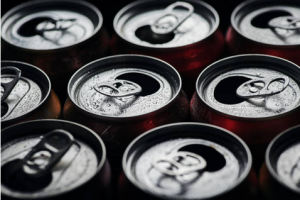South Africa’s beverage industry is as diverse and vibrant as its culture, offering opportunities for entrepreneurs to quench the thirst of consumers with innovative and refreshing drink options. Whether you dream of creating the next iconic soft drink, craft beer, artisanal tea, or healthy juice, starting a beverage company in South Africa requires careful planning, creativity, and strategic execution. In this blog post, we’ll explore the essential steps and considerations for launching a successful beverage company in South Africa.
How to Start a Beverage Company in South Africa
1. Market Research and Concept Development
Before diving into the beverage industry, conduct comprehensive market research to identify consumer preferences, trends, and potential gaps in the market. Consider factors such as target demographics, taste preferences, packaging preferences, and pricing sensitivity. Use this information to develop a unique and compelling beverage concept that meets the needs and desires of your target audience.
2. Recipe Development and Testing
Once you have a concept in mind, it’s time to develop your beverage recipes. Experiment with different ingredients, flavor profiles, and formulations to create a product that stands out in the market. Conduct taste tests and gather feedback from friends, family, and potential customers to refine your recipes and ensure they meet quality standards.
3. Regulatory Compliance and Licensing
Familiarize yourself with the regulatory requirements for launching a beverage company in South Africa. Obtain necessary permits and licenses from regulatory bodies such as the Department of Health, the National Regulator for Compulsory Specifications (NRCS), and the South African Revenue Service (SARS). Ensure compliance with food safety regulations, labeling requirements, and industry standards.
4. Supply Chain Management
Establish relationships with reliable suppliers and manufacturers to source high-quality ingredients and packaging materials for your beverages. Consider factors such as pricing, lead times, quality control, and sustainability when selecting suppliers. Develop a robust supply chain management strategy to ensure consistent availability of raw materials and smooth production processes.
5. Brand Development and Packaging Design
Invest in branding and packaging design that reflects the essence of your beverage company and resonates with your target audience. Create a memorable brand identity, including a distinctive logo, color palette, and brand messaging. Work with talented designers and packaging experts to design eye-catching labels, bottles, cans, or packaging formats that stand out on store shelves.
6. Production and Manufacturing
Choose a production facility or co-packing partner equipped to handle the manufacturing and bottling of your beverages. Ensure that the facility meets food safety standards and has the capacity to scale production as your business grows. Develop clear production processes and quality control measures to maintain product consistency and safety.
7. Distribution and Sales Channels
Identify distribution channels to reach your target market effectively. Explore options such as direct-to-consumer sales through your website or e-commerce platforms, wholesale distribution to retailers and restaurants, and partnerships with distributors or beverage wholesalers. Develop a distribution strategy that maximizes your reach and minimizes costs while ensuring efficient delivery of your products.
8. Marketing and Promotion
Develop a comprehensive marketing strategy to build brand awareness and drive sales of your beverages. Utilize digital marketing channels such as social media, influencer partnerships, email marketing, and content marketing to engage with your audience and promote your products. Participate in industry events, tastings, and festivals to showcase your beverages and connect with potential customers.
9. Customer Feedback and Iteration
Continuously gather feedback from customers, retailers, and industry experts to evaluate the performance of your beverages and identify areas for improvement. Use this feedback to iterate on your recipes, packaging, branding, and marketing strategies to better meet the needs and preferences of your target audience.
10. Scaling and Growth
As your beverage company grows, explore opportunities to expand your product line, enter new markets, and diversify your distribution channels. Invest in infrastructure, technology, and talent to support business growth while maintaining the quality and integrity of your beverages. Stay agile and adaptable to navigate changes in the market and capitalize on emerging trends.
Conclusion
Starting a beverage company in South Africa offers entrepreneurs an exciting opportunity to innovate, create, and delight consumers with unique and delicious drink options. By following these essential steps and considerations, aspiring beverage entrepreneurs can lay the foundation for a successful and thriving business in South Africa’s dynamic and competitive beverage industry. Cheers to your entrepreneurial journey and may it be filled with success and satisfaction!

Leave a Reply